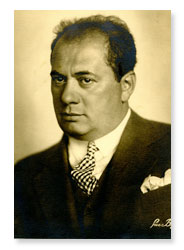

Waghalter’s career started first as a conductor under the patronage of Artur Nikisch before he was called as music director in 1912 to the newly opened German Opera House in Berlin’s autonomous city-within-a-city, Charlottenburg. It was to be a less stuffy, more democratic alternative to Berlin’s nearby Court Opera Unter den Linden. During Waghalter’s years in Berlin, he was responsible for establishing an enthusiastic public for the music of Giacomo Puccini while cultivating a wide circle of friends such as Franz Schreker, Eugene d’Albert and even Paul Hindemith and Albert Einstein, who joined him in occasional performances of chamber music held in Waghalter’s home. During these years, Waghalter would write four operas, one of which, Mandragola b...
| Title | |
| WAGHALTER, I.: Violin Concerto / Rhapsody / Violin Sonata (Trynkos, Latsabidze, A. Walker) (recording excerpts) (from Naxos 8.572809) | |

|
WAGHALTER, I.: Violin Concerto / Rhapsody / Violin Sonata (Trynkos, Latsabidze, A. Walker) (recording excerpts) (from Naxos 8.572809)
Composer:
Waghalter, Ignatz
Artists:
Latsabidze, Giorgi -- Royal Philharmonic Orchestra -- Trynkos, Irmina -- Walker, Alexander
Label/Producer: Naxos Video Footage |
